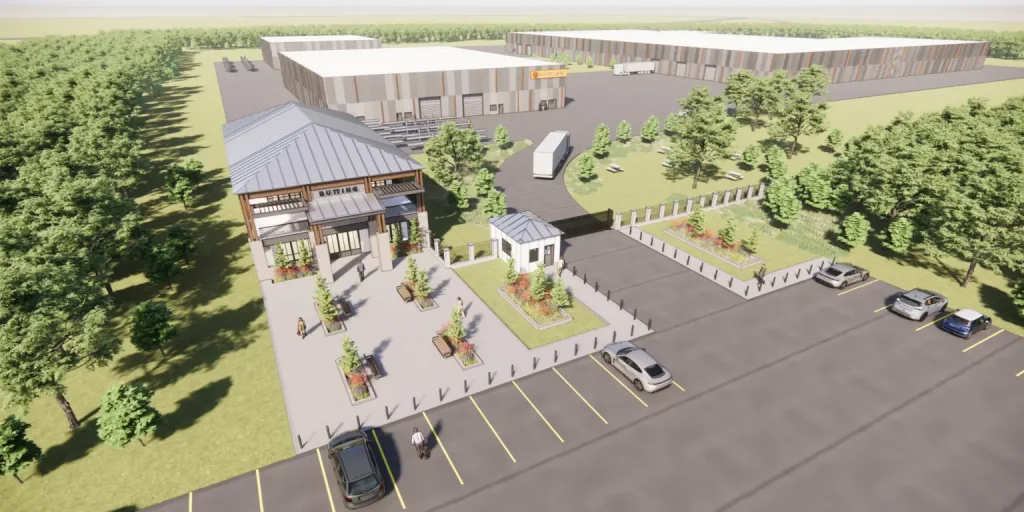Zoning and land use regulation has largely choked off housing construction in many American cities. This is an unintended but predictable consequence of requiring government permission for building.
Understanding why requires starting with the why of zoning. Some land uses interfere with the use and enjoyment of nearby property. These nuisances include noise, smells, vibrations, and smoke, and often have a very limited range of impact. Consequently physically separating conflicting uses can address the problem. Zoning typically establishes residential, commercial, and industrial zones.
Zoning requires government control over building. A planning board exercises this control. Some boards are elected, and others appointed by the city council or mayor. Importantly, we have government permission and electoral control.
Zoning protects against a factory being built next to a house. The factory lowers home values, and moving does not make back this loss. People will naturally seek to protect what is for many families their largest investment.
Building homes or apartments nearby typically imposes costs on homeowners. The building is noisy. The homes or apartments, once occupied, increase traffic, make parking scarcer, lead to longer lines at local grocery stores, and create more noise problems. Adding housing also burdens local government services, like water and sewer, although impact fees on developers and the property taxes paid by new construction can cover these costs. Building smaller homes on smaller lots can also lower property values. So zoning often specifies minimum lot and home sizes.
People will want to use the government permission process to protect their neighborhood. Residents frequently rally to the NIMBY cause (Not in My Backyard). NIMBYism dominates in local politics. Why? Aren’t planning boards supposed to make land use decisions in the best interest of the entire community?
Consider, however, the position of an elected local official. Most citizens will not follow most of the actions of the planning commission. The neighbors of a proposed subdivision or apartment complex will be aware and attend the planning commission meeting. They might well take revenge on commissioners in the next election. Approving building typically looks like a losing electoral proposition: you lose the neighbors’ votes and win few others (except perhaps from the developer’s).
Repetition of the NIMBY refrain significantly restricts housing supply. High housing prices and rents limit growth in some of America’s most productive cities, as I discussed last time. Economists Chang-Tai Hsieh and Enrico Moretti estimate that zoning and land use restrictions lower income nationally by $4,000 annually.
The restricted supply benefits home and apartment owners and hurts lower-income families who rent who have difficulty finding affordable and decent housing. Nonetheless, I see high house prices as a by-product of NIMBY. Homeowners turn out at planning commission meetings to oppose building in their neighborhood, not to boost home prices city-wide.
Requiring government permission to build is the root of the problem. Proponents might say zoning will be used to rationally plan cities, but elected officials will listen to the people who participate in the political process. And this produces NIMBY and gridlock.
Government permission is not necessary to coordinate land use in cities. Houston has never enacted zoning, and McAllen, Texas, where I previously lived, had almost no zoning. Our realtor cautioned us when we were house-hunting to buy in a planned community with a neighborhood association. Otherwise, a neighbor might start raising goats or put six old trailers on their property.
Neighborhood associations and the legal covenants behind them allow homeowners to control nuisances within their neighborhood. But developers can build homes on lots without covenants. Without the requirement for government permission, neighbors can only limit building as specified by the covenants.
People will understandably want to protect the value of their homes. Zoning can avoid conflicting land uses, but permission to build will be given as electoral forces dictate. The predictable result is no building in anyone’s backyard.
Daniel Sutter is the Charles G. Koch Professor of Economics with the Manuel H. Johnson Center for Political Economy at Troy University and host of Econversations on TrojanVision. The opinions expressed in this column are the author’s and do not necessarily reflect the views of Troy University.












